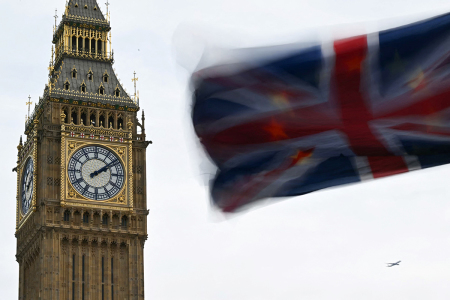UK bans puberty blockers for gender dysphoria ‘indefinitely’: 'Unacceptable safety risk'

The United Kingdom has moved to indefinitely ban the use of puberty-blocking drugs on children who struggle with gender dysphoria for the foreseeable future, save for clinical trials.
The U.K. Department of Health and Social Care announced Wednesday that a recently enacted temporary restriction on the sale and supply of puberty blockers via private prescription for the treatment of gender dysphoria in minors will be made permanent.
"The Commission on Human Medicines (CHM) has provided independent expert advice that there is currently an unacceptable safety risk in the continued prescription of puberty blockers to children," stated DHSC.
"Puberty blockers for the treatment of gender incongruence and/or gender dysphoria in under 18s were banned temporarily in May 2024 after the Cass Review found there was insufficient evidence to show they were safe. Legislation will be updated today to make the order indefinite and will be reviewed in 2027."
Health and Social Care Secretary Wes Streeting said pediatric healthcare "must always be evidence-led" and that health officials "need to act with caution and care when it comes to this vulnerable group of young people."
"We are working with NHS England to open new gender identity services, so people can access holistic health and wellbeing support they need," stated Streeting.
"We are setting up a clinical trial into the use of puberty blockers next year, to establish a clear evidence base for the use of this medicine."
A group of United Kingdom-based LGBT advocacy groups, among them the controversial trans ideology group Mermaids, denounced the ban in a joint statement released Thursday.
"Every single child and young person, across all nations of the UK, should be able to get the care that they need to grow up happy and healthy. To be supported by well trained, knowledgeable professionals who can make the right decisions with them, and who have access to appropriate medical treatments," they stated.
"The Government's approach will further harm and alienate trans children and young people and their families, who already experience significant barriers and discrimination when accessing the services that are meant to support them."
Lara Brown, a senior research fellow with the conservative British think tank Policy Exchange, said that the ban was a "victory" for the safety of minors and evidence-based research.
"There remains a great deal more to be done to implement the recommendations of the Cass Review and to row back the tide of gender ideology in our institutions, but this is a brave and important call for which Wes Streeting should be commended," she said, as quoted by The Guardian.
In March, the National Health Service of England announced it would stop providing puberty-blocking drugs for minors with gender dysphoria, except when the drugs were part of a clinical trial.
"NHS England has carefully considered the evidence review conducted by [National Institute for Health and Care Excellence] and further published evidence available to date," an NHS spokesperson stated.
"We have concluded that there is not enough evidence to support the safety or clinical effectiveness of puberty suppressing hormones to make the treatment routinely available at this time."
In June 2023, NHS England issued an interim guidance following the release of a research report led by Dr. Hillary Cass, the former president of the Royal College of Paediatrics and Child Health.
Amid an exponential increase in children being referred to an NHS gender identity clinic in the last decade, Cass' independent review was published in 2022, finding that "social transitioning" is not a "neutral act" and could have "significant effects" in terms of "psychological functioning."
"We do not fully understand the role of adolescent sex hormones in driving the development of both sexuality and gender identity through the early teen years, so by extension we cannot be sure about the impact of stopping these hormone surges on psychosexual and gender maturation," the report reads. "We therefore have no way of knowing whether, rather than buying time to make a decision, puberty blockers may disrupt that decision-making process."
Cass' review led to the closing of the Tavistock and Portman NHS Trust's gender identity clinic.
The U.K.'s decision to indefinitely ban puberty blockers for gender dysphoria treatment comes as the U.S. Supreme Court considers whether states can ban such medications.
The Supreme Court heard oral arguments earlier this month in the case of United States v. Skrmetti, which will decide if Tennessee can ban puberty blockers and body-mutilating surgeries from being performed on trans-identified youth.






















